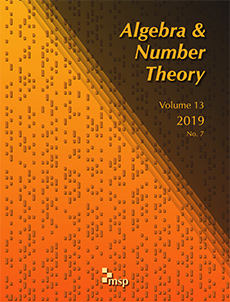Abstract
Chebyshev observed in a letter to Fuss that there tends to be more primes of the form than of the form . The general phenomenon, which is referred to as Chebyshev’s bias, is that primes tend to be biased in their distribution among the different residue classes . It is known that this phenomenon has a strong relation with the low-lying zeros of the associated -functions, that is, if these -functions have zeros close to the real line, then it will result in a lower bias. According to this principle one might believe that the most biased prime number race we will ever find is the versus race, since the Riemann zeta function is the -function of rank one having the highest first zero. This race has density , and we study the question of whether this is the highest possible density. We will show that it is not the case; in fact, there exist prime number races whose density can be arbitrarily close to . An example of a race whose density exceeds the above number is the race between quadratic residues and nonresidues modulo , for which the density is . We also give fairly general criteria to decide whether a prime number race is highly biased or not. Our main result depends on the generalized Riemann hypothesis and a hypothesis on the multiplicity of the zeros of a certain Dedekind zeta function. We also derive more precise results under a linear independence hypothesis.
Citation
Daniel Fiorilli. "Highly biased prime number races." Algebra Number Theory 8 (7) 1733 - 1767, 2014. https://doi.org/10.2140/ant.2014.8.1733
Information





